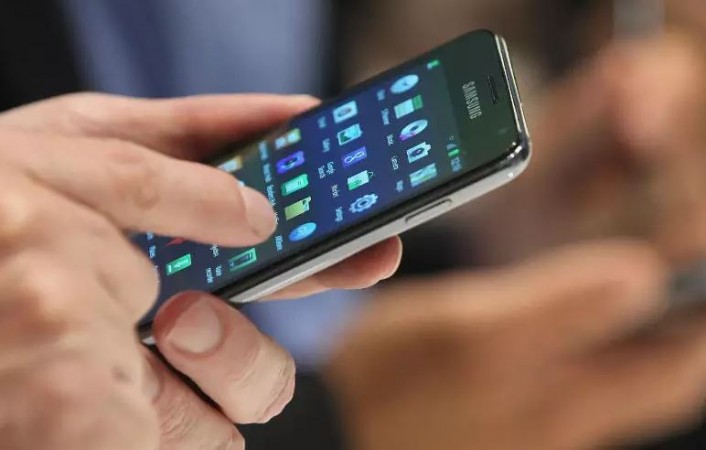
In today's digital age, mobile phones have become indispensable tools in our daily lives. They connect us to the world, help us perform numerous tasks, and provide endless entertainment. However, health experts are raising alarms about the serious health risks associated with excessive mobile phone use. While it may seem harmless to spend hours on your smartphone, this habit can lead to several severe health issues, affecting both physical and mental well-being.
Eye Diseases Risk
Impact on Eyesight: One of the most significant concerns is the impact on our eyesight. Continuous or prolonged exposure to mobile phone screens can strain the eyes, leading to a condition known as digital eye strain or computer vision syndrome. Symptoms include dryness, irritation, blurred vision, and headaches.
Dry Eyes: Staring at a screen for extended periods reduces blinking, which can cause dry eyes. This condition is characterized by redness, itchiness, and a gritty feeling in the eyes. Over time, chronic dry eyes can lead to more serious eye problems.
Risk of Glaucoma: More alarmingly, excessive screen time can increase the risk of glaucoma. This eye disease damages the optic nerve, leading to gradual vision loss and potentially permanent blindness. Studies have shown a correlation between prolonged screen use and higher intraocular pressure, a key factor in glaucoma development.
Blue Light Exposure: The blue light emitted by screens is another concern. Blue light has been found to penetrate deep into the eye, potentially causing retinal damage. This exposure can also interfere with sleep patterns by disrupting the production of melatonin, the sleep hormone.
Difficulty Focusing
Distraction and Reduced Attention Span: Mobile phones offer a constant stream of notifications and entertainment, which can be highly distracting. This is particularly problematic for students, who may struggle to concentrate on their studies. The constant interruptions from social media, games, and other apps can lead to reduced attention spans and poor academic performance.
Cognitive Overload: The brain can become overwhelmed by the rapid influx of information from mobile devices. This cognitive overload can impair decision-making abilities and reduce overall productivity.
Impact on Mental Health
Anxiety and Depression: Excessive use of mobile phones, especially for activities like social media and gaming, has been linked to increased levels of anxiety and depression. The constant need for validation, fear of missing out (FOMO), and exposure to negative content can contribute to these mental health issues.
Sleep Disruption: The blue light from screens not only affects the eyes but also disrupts sleep. Poor sleep quality and reduced sleep duration are associated with numerous health problems, including anxiety, depression, and cognitive decline.
Headaches and Migraines: Prolonged screen time can lead to frequent headaches and migraines. These conditions are often triggered by eye strain and the artificial lighting from screens.
How to Reduce Screen Time and Protect Your Health
Set Limits on Screen Time: Health experts recommend setting boundaries for screen usage. This can include designated screen-free times during the day, such as during meals and before bedtime.
Take Regular Breaks: Follow the 20-20-20 rule: every 20 minutes, take a 20-second break and look at something 20 feet away. This helps reduce eye strain and gives your eyes a chance to rest.
Use Eye Protection: Consider using blue light filters on your devices or wearing blue light-blocking glasses. These can help reduce the amount of blue light reaching your eyes.
Manage Notifications: Turn off non-essential notifications to minimize distractions. This can help you stay focused and reduce the compulsion to check your phone frequently.
Create a Screen-Free Bedtime Routine: Avoid using screens at least an hour before bed. Instead, engage in relaxing activities such as reading a book, meditating, or spending quality time with family.
Encourage Outdoor Activities: Spend more time outdoors and engage in physical activities. This not only reduces screen time but also promotes overall health and well-being.
Seek Professional Help: If you or your child are experiencing significant mental health issues related to screen use, consider consulting a healthcare professional. Therapy and counseling can provide valuable support and strategies to manage these problems.
In conclusion, while mobile phones have become an integral part of modern life, it is crucial to use them responsibly to safeguard our health. By taking proactive steps to limit screen time and protect our eyes and mental health, we can enjoy the benefits of technology without falling victim to its potential harms.
BIMSTEC Foreign Ministers Meet PM Modi on Regional Cooperation
Why Sleeping with Your Mobile Phone Can Harm Your Health
Revolutionary Robotic Heart Surgery: A New Era in Cardiac Care